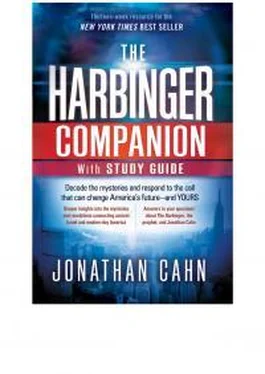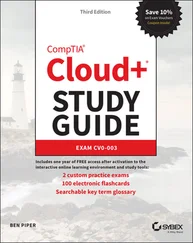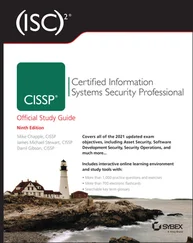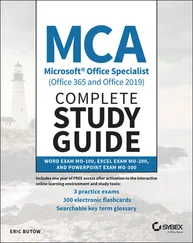Judgment or Redemption?
But is judgment inevitable? What cases do we see in the Bible of a nation hanging in the balance?
We have the case of Sodom, in which not even ten righteous people could be found. The result was destruction.
A nation can partially turn back to God through the influence of godly leaders, as the southern kingdom of Judah did under King Josiah, experiencing a revival during their rule, only to backslide over the next generation and face judgment. In that case judgment was postponed.
Finally, a nation can turn completely to God in repentance, as Nineveh did after the warnings of the prophet Jonah, and avoid judgment for generations to come. In that case the judgment was turned back, and the city was saved.
Between a future of judgment or revival, there is another possibility. There can be both. Sometimes revival only comes through judgment, through shaking, through loss. Most people come to the Lord through such shaking and loss, or some kind of crisis, external or internal. So it is with nations. After 9/11 people flocked to houses of worship. It looked as if there could be a national revival. But the movement was short-lived. There was no real repentance, no changing of course. And without repentance, there can be no revival.
But what happened in those first few weeks after 9/11 shows the connection between calamity or shaking and revival. It is often only through such calamity and shaking that people return to the Lord and to their first love. So there is possibility also for a dual picture: judgment concerning the ungodliness of American mainstream culture but revival for those who in the midst turn to God in repentance.
End-Time Prophecy
Which course will America follow? A look at end-time prophecy may provide some answers.
One of the key signs that we have entered the period known biblically as the end times is the miraculous return of the Jewish people to their land, following twenty centuries of exile—all in accordance with biblical prophecy.
For I will take you from among the nations, gather you out of all countries, and bring you into your own land.
—EZEKIEL 36:24
Behold, O My people, I will open your graves and . . . bring you into the land of Israel.
—EZEKIEL 37:12
As the Bible foretells, the reborn nation of Israel and the city of Jerusalem will be the center of controversy (Zech. 12). Besides Israel returning as a nation, a further sign of the end times will be the rise of a one-world government, the most powerful in history. It will be associated with a godless ruler, alluded to in the Book of Daniel and described more fully in the Book of Revelation. Called “the beast,” he is worshipped by the world, blasphemes God, wars against God’s people, and conquers the nations through war and seduction (Rev. 13:4–8).
As the Book of Zechariah foretells, Israel will eventually be attacked by all nations. As Revelation 16 relates, it is the one-world ruler who gathers them against her. As both Zechariah and Revelation state, God will, through the return of the Messiah, destroy this final attempt to wipe out Israel and set up His kingdom in Jerusalem.
The Missing Superpower
All this leads up to the question: Where is America in all these prophecies? The answer is that there is no clear reference to America in end-time prophecy. Moreover, not a word is said in these end-times prophecies about Israel’s most powerful human ally rescuing Israel. It is God who literally does so in the end.
Thus between where we are now and where the world is at the end of the age, there is a gap and a question: How do we go from the American age where America stands preeminent among nations, to a post-American age as revealed in end-time prophecy? Something has to happen.
The Harbinger fills in the gaps between where we are and what is yet to come.
At the same time, even though the overall direction of American culture points to a continued progression of moral descent, apostasy, shaking, and judgment, we cannot underestimate the power of prayer and the Lord’s Spirit. And even in the midst of apostasy, shaking, and judgment there can be true revival among those who seek Him.
WEEK 11 EXPLORE and APPLY
Read chapter 20 of The Harbinger .
Read Isaiah 9:10–10:3; Ezekiel 36:24; 37:12; Zechariah 12; Revelation 13:4–8.
Explore
How did ancient Israel ultimately respond to God’s repeated calls to turn from her sins?
What were the consequences of ancient Israel’s failure to repent and return?
Why did the people fail to respond to the Nine Harbingers and other warnings and never return to God?
In the case of Sodom, what was the condition God gave for the city to be spared judgment?
What does this say about the heart and will of God?
In the case of Judah, her judgment was decreed but was then held back, postponed, delayed. Because of what or whom?
What does that reveal?
In the case of Nineveh, was there any hope given in the warning of the prophet Jonah?
Then why was there salvation?
What was it that the people of Nineveh did that the others did not?
What is significant about the salvation of Nineveh with regard to the people who inhabited it (and linked to Isaiah 9:10)?
After God judged ancient Israel, was He through with His people?
What is the evidence from Scripture that He was not through with His people?
What does the return of the Jewish people to the land of Israel say about God’s ancient covenant with His people?
What should our stance as a nation be toward Israel and its people?
What does it say about His faithfulness to believers today?
What are some of the key signs of the end times according to biblical prophecy that are being fulfilled today?
What does the Bible say about America in the end times? What does this mean?
If America is not mentioned in biblical end-times prophecies, how is there still hope for this nation?
How can judgment come to a nation such as America?
How can we be safe?
What is the Hebrew word for safety or salvation? And what does this have to do with the gospel?
Spiritual Truths
How can our own generation in modern America avoid the fate of ancient Israel?
How does God’s eternal, unconditional love for Israel in spite of her sins relate to our own lives and walk with Him as individual believers?
Mission to Apply This Week
In view of the signs of the time and the lateness of the hour, what changes should this cause in the way you live? If you knew you only had a limited time left, maybe even one week, how would you change things in your life, especially in the following areas?
• Your living with, dealing with—or not dealing with—sin
• Your non-responsiveness to God’s calling for you to rise higher in Him
• The things you’ve put off doing but which you know you need to do
• Your relationships, unforgiveness, walls, unresolved areas
• Sharing the gospel with the unsaved
• Your relationship and time with God
What specific steps can you take this week to start changing your life? Write them down in the space provided on the next page. This is your mission for the week.
Take time now to commit this to God and pray for His help and anointing.
Seal this commitment in prayer (individually, in small groups, as a class, or congregationally).
NOTE: Leader, this could be a good time for a presentation and call to salvation.
Prepare for next week (groups only): This week read, go over, and explore the next chapter, “The Call.”
Читать дальше












